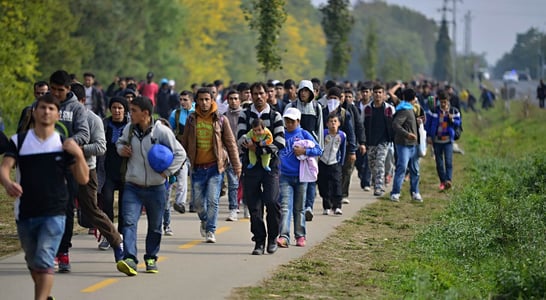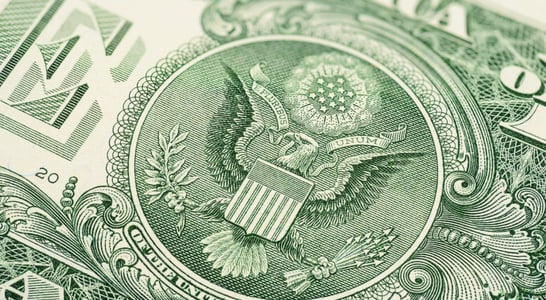
Free Trade Day
Dig into the benefits and disadvantages of free trade, and understand what this commonly tossed around phrase would really mean to the world economy.
Free trade is an often discussed topic in economics but, outside of the experts, not many people seem to know about what free trade is. For those who are looking for a great learning opportunity, then Free Trade Day is the ticket to that! Free Trade Day teaches people about what free trade is, why there are people who support it and why it has had such a historical impact in the world.
As globalization continues to impact the way economic life works, Free Trade Day emphasizes what the world would look like without tax and trade barriers. It also aims to help encourage people to learn about this kind of economic thought and its social impacts.
How to Celebrate Free Trade Day
Observe this day in a variety of ways, including:
Learn More About Free Trade
When it comes to economics, the average person might remember some minor aspects from a course in school or college, but most people could use some brushing up. Free Trade Day would be the ideal time to grow in knowledge about a subject that impacts people literally all over the world.
Here are some resources to get started learning about the way Free Trade works:
- Mad About Trade by Daniel T. Griswold. This book breaks down the complicated concepts of free trade so that the average Main Street American can understand and see the benefits of it.
- Free Trade Under Fire by Douglas Irwin. Now in its Fifth Edition, this book addresses the saga of the Trans-Pacific Partnership and puts to rest a number of misconceptions around Free Trade.
- Free Trade Today by Jagdish N. Bhagwati. Based on the Stockholm lectures delivered by Bhagwati, this book features critical insights from revolutionary developments in commercial policy theory.
- Against the Tide: An Intellectual History of Free Trade by Douglas Irwin. Take a look at the background of Free Trade, as far back as Adam Smith, and trace the ideas of protectionist thinking into the present.
Start a Conversation About Free Trade
After doing a bit of research, those who support the idea of free trade can show their support by bringing friends and family together to discuss it. Of course, depending on the group, it can be brought up at the dinner table casually or perhaps the parties might want a bit of warning ahead of time to know what will be discussed.
Look into and discuss information about the benefits and disadvantages of free trade on a national and global scale. Then seek opinions from expert economists about what free trade could do to the economy overall. Perhaps even post those opinions on social media to share ideas and start a conversation.
Watch a Film About International Trade
Those who are interested in films might find these movies a great way to start a discussing about trade and how it is executed in certain situations:
- This is What Democracy Looks Like (2000). Delving into the politics behind American trade and the World Trade Organization, this film takes a critical view of trade history.
- Zapatista (1999). Based on the day the North American Free Trade Agreement took place in 1994, an uprising pf Mayan peasants took over in Southeastern Mexico.
- The Yes Men (2003). This just-for-fun mockumentary features two men who travel around to financial conferences all over the world, impersonating members of the World Trade Organization.
- The Real Adam Smith: A Personal Exploration by John Norberg (2016). Taking an in-depth view of forward-thinking Adam Smith, “the father of modern economics” and his relevance three centuries later.
History of Free Trade Day
Economics is a complex social science and its central themes– supply, demand and taxation – are discussed by commentators with many different perspectives. Free Trade Day is one such perspective in modern economic debate.
Historically, the concept of Free Trade was founded by a variety of figures in the 18th century, including Scotsman, Adam Smith. However, the Free Trade movement in the US began during the 19th century when trade was a diverse issue in American politics. High tariffs and fees began to take place during the time of the Civil War, in the early 1860s, when northern traders wanted to protect their trade from the southern competition. The southern trades opted for open trade policies to export their cotton to benefit their businesses.
But free trade in North America didn’t officially begin as a concept until more than a century later in the 1980s with the North American Free Trade Agreement (NAFTA). The advances towards the idea of free trade came from the rate of tariff falling due to interest in foreign trade and the post-war economy of World War II.
Free Trade, from then on, became a topic of discussion as the ’90s and 2000s rolled around. This created many economic debates as companies would internationalize their production to take advantage of larger fields for commerce.
Free Trade Day represents those who argue in favor of free trade and reinstalling free trade and removing the tariff barriers. It supports the idea that lower prices for consumers and growth opportunities for producers would ensue.
Free Trade Day aims to help teach people about the trading system and what the bigger picture is in regards to world markets. Free Trade Day is annually celebrated by encouraging people to purchase from.
Free Trade Day Timeline
1776
The Wealth of Nations is published
Scotsman, Adam Smith, writes this book that will eventually become one of the most influential books ever written about the economic marketplace.[1]
1957
European Economic Community is formed
Working to bring about economic integration within its six founding countries. It will eventually disband in favor of the EU.[2]
1960
European Free Trade Association is started
Put into effect as an alternative to the EEC by several countries who did not originally join in.[3]
1994
NAFTA takes effect
The North American Free Trade Agreement between the US, Canada, and Mexico begins.[4]
1995
World Trade Organization is created
With the intention of promoting fair trade among the nations of the world, this organization is formed.[5]
Free Trade Day FAQs
What is Free Trade?
Free trade is a policy where governments do not apply tariffs or other restrictions to imports and exports.[1]
What is a Free Trade Agreement?
A Free Trade Agreement between two or more countries is a pact that allows them to reduce the barriers of trade.[2]
Is Free Trade good or bad?
As with most economic and political situations, Free Trade comes with pros and cons. For instance, economic growth might be a pro, but increased job outsourcing might be considered a con.[3]
Who started Free Trade?
Many ideas for Free Trade can be traced back to the 18th century when Scotsman Adam Smith wrote The Wealth of Nations.[4]
Also on ...
View all holidaysWorld Ovarian Cancer Day
Research and spread awareness about ovarian cancer to help others recognize the dangers and signs early, and increase survival and recovery odds for many.
National Have a Coke Day
That effervescent beverage with the iconic red label, sparking joy and refreshment across generations with its timeless allure.
World Donkey Day
Visit a petting zoo, or simply do some research into the underappreciated, stalwart, useful and intelligent beasts of burden known as donkeys.
We think you may also like...
World Refugee Day
Educate yourself and others about the plights of refugees around the world, and foster empathy and care for those who need our help in these times.
National Unclaimed Property Day
Hidden funds, forgotten by many, await discovery—a financial treasure hunt within bureaucratic labyrinths, yielding unexpected windfalls.








